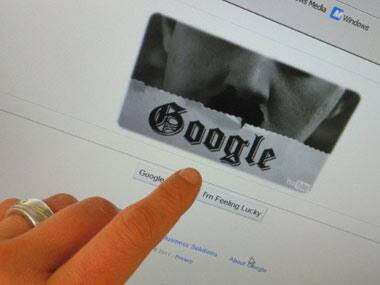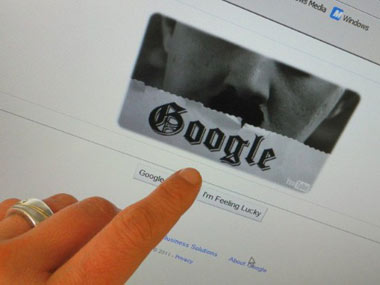Is an ostrich’s eye bigger than its brain? How many of you turned to Google for the answer? I did, when I learnt that this was the question posed to a bunch of Harvard undergraduate students when a professor decided to check how people handle information and how Google, a proxy for search as it were, affects our memory. In a set of cleverly designed four offline experiments, B Sparrow at Columbia University explored how the Internet is changing the way we look for and store information. Not surprisingly, she found that people are using the Internet as a “personal memory” bank, now termed “the Google effect”. [caption id=“attachment_41924” align=“alignleft” width=“380” caption=“Why remember something when you can find it online? Eva Hambach/AFP Photo”]
 [/caption] First the theory: more than 30 years ago, academician Daniel Wegner proposed a concept called “transactive memory”. It says that people divide the task of remembering certain types of shared information. In other words, wives can remember to pay bills or attend children’s school events, husbands can remember to pay premiums (no gender stereotyping implied here, please). This allows them to free their Memory (think Random Access Memory in computers) of duplicated stuff. Professor Sparrow says internet is filling this role — “an enormous collective act of transactive memory”, reporting her study in today’s issue of the journal Science. I won’t go into the details of the experiment but straightaway to the conclusion: there is indeed something called Google, or Yahoo effect. Why remember something when you can find it online? After all, owing to computer or tablet or smartphone, life is perennially ‘wired’. “The results of four studies suggest that when faced with difficult questions, people are primed to think about computers and that when people expect to have future access to information, they have lower rates of recall of the information itself and enhanced recall instead for where to access it,” says Sparrow. Is that a bad thing, maybe not; is there a shift in learning, most likely yes. Sometime back The Atlantic published an
interesting article
‘How Google is making us stupid: What the Internet is doing to our brains’. Stupid or not, but it certainly is changing the way we process information, retrieve it and convey to people. (There’s another good read if you, like me, wonder what is happening to your memory: ‘The Seven Sins of Memory’. The few nuggets I picked up at an author- book reading in Harvard Square 10 years ago are still lodged in my memory through I don’t quite remember other details J)
[/caption] First the theory: more than 30 years ago, academician Daniel Wegner proposed a concept called “transactive memory”. It says that people divide the task of remembering certain types of shared information. In other words, wives can remember to pay bills or attend children’s school events, husbands can remember to pay premiums (no gender stereotyping implied here, please). This allows them to free their Memory (think Random Access Memory in computers) of duplicated stuff. Professor Sparrow says internet is filling this role — “an enormous collective act of transactive memory”, reporting her study in today’s issue of the journal Science. I won’t go into the details of the experiment but straightaway to the conclusion: there is indeed something called Google, or Yahoo effect. Why remember something when you can find it online? After all, owing to computer or tablet or smartphone, life is perennially ‘wired’. “The results of four studies suggest that when faced with difficult questions, people are primed to think about computers and that when people expect to have future access to information, they have lower rates of recall of the information itself and enhanced recall instead for where to access it,” says Sparrow. Is that a bad thing, maybe not; is there a shift in learning, most likely yes. Sometime back The Atlantic published an
interesting article
‘How Google is making us stupid: What the Internet is doing to our brains’. Stupid or not, but it certainly is changing the way we process information, retrieve it and convey to people. (There’s another good read if you, like me, wonder what is happening to your memory: ‘The Seven Sins of Memory’. The few nuggets I picked up at an author- book reading in Harvard Square 10 years ago are still lodged in my memory through I don’t quite remember other details J)
From her perch in Bangalore as a Senior Editor at Forbes India, Seema usually writes about science and technology. She believes that while we may have settled into consuming the nicely packaged final products of science -- technology being a hand maiden of science -- we are distancing ourselves from all the effort that goes into it. This blog is an attempt to bring an occasional peek into those efforts and ideas.
)